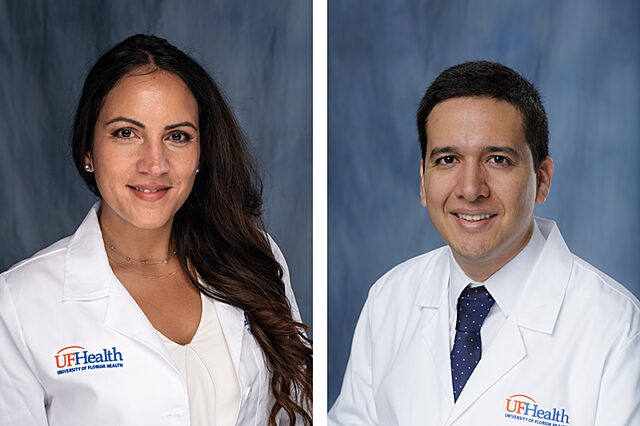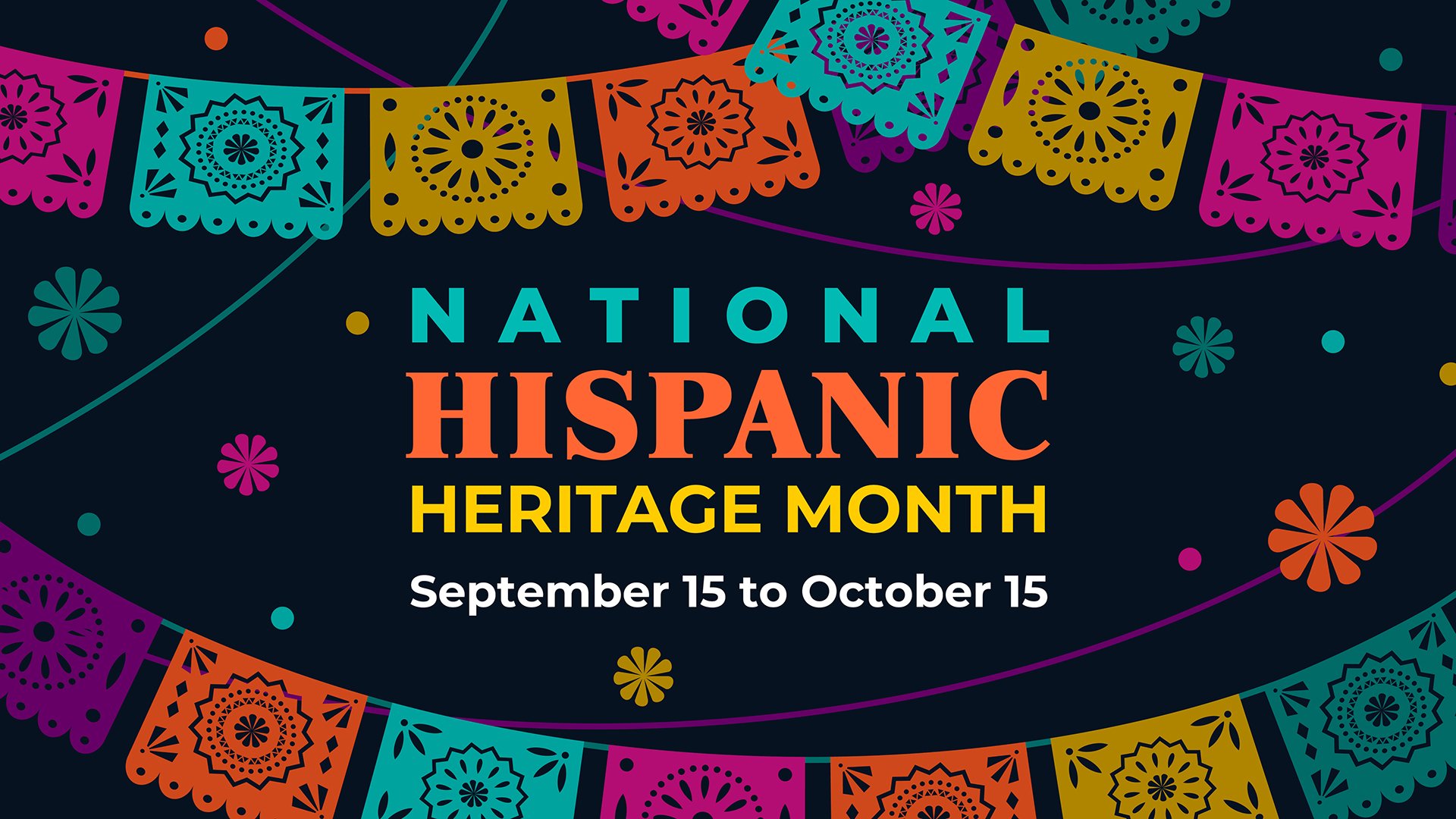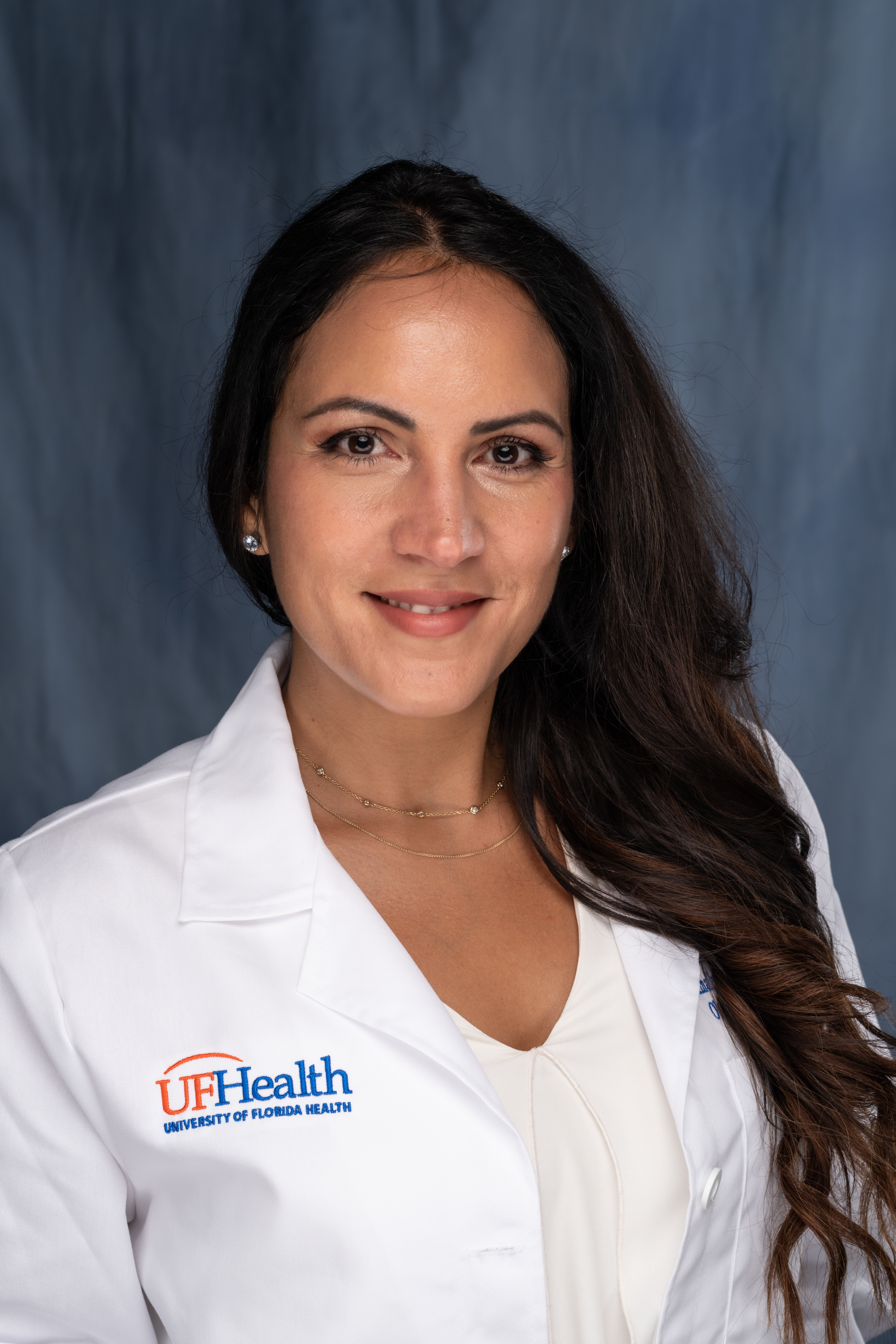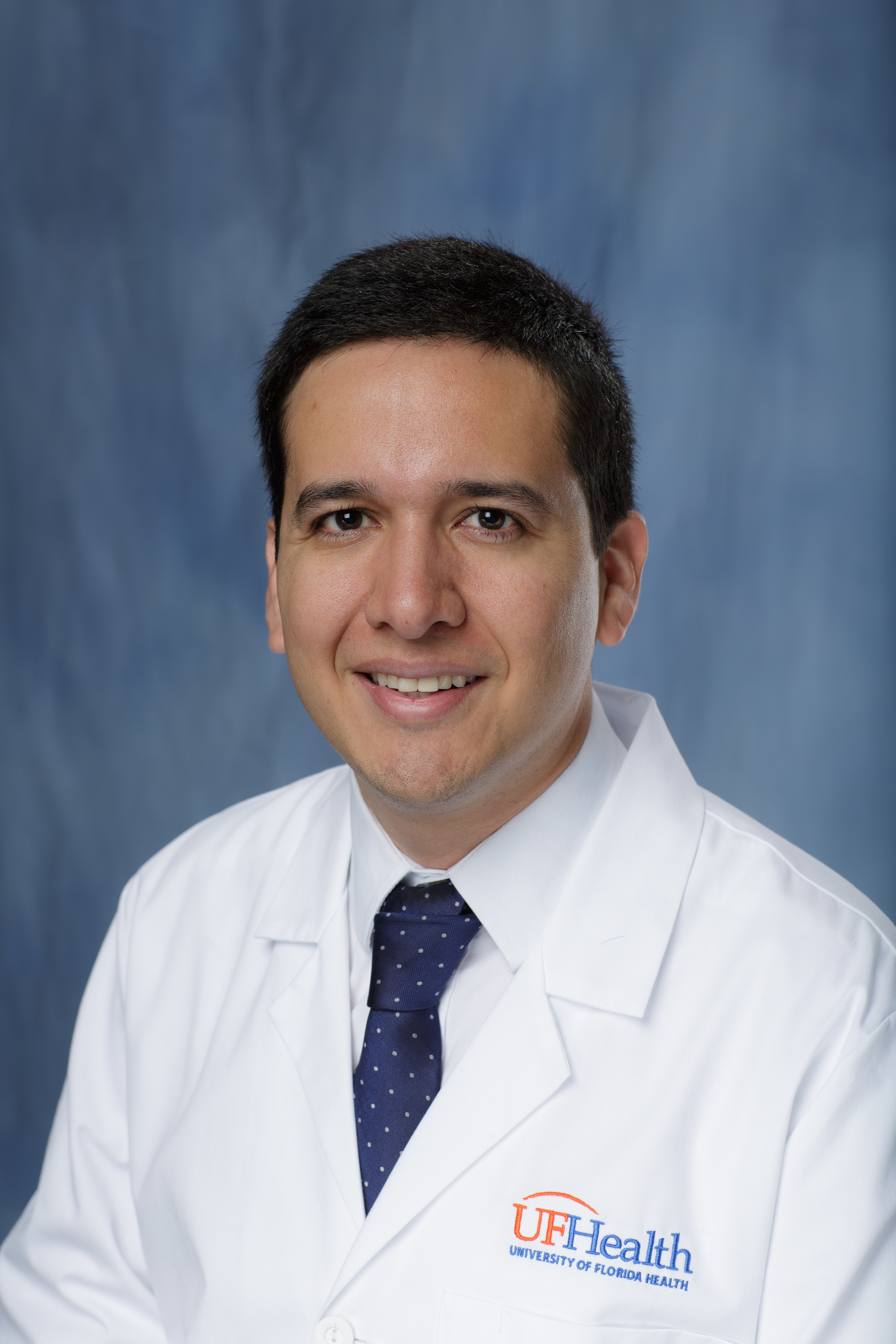UF Health Physicians Shed Light on the Meaning of Hispanic Heritage Month

We’re approaching the end of National Hispanic Heritage Month, a time that Americans celebrate the histories, cultures and contributions of American citizens whose ancestors came from Spain, Mexico, the Caribbean, and Central and South America.

At UF Health, the contributions of Hispanics/Latinos are immeasurable and ever-growing. They continue to make an impact at every level of our health system, both in the medical and academic settings.
However, while their expertise reaches patients, it also extends to the next generation of physicians and other health care workers who are inspired by the diversity they bring to our health system.
Two of our physicians – Amira Quevedo, MD, and Juan Mora, MD – expressed strong feelings as it relates to this nationally recognized month that is observed from September 15 to October 15 and is enjoying its 35th anniversary this year.
Amira Quevedo, MD, Clinical Assistant Professor, UF Department of Obstetrics & Gynecology
Quevedo spoke from the heart about what it means to contribute in such a meaningful way as a Cuban-born physician, helping people improve their quality of life.
“I come from humble beginnings being born in Güines, Cuba. My mother is a Cuban-trained obstetrician who practiced her profession for 23 years guiding women through normal and complicated pregnancies. My father and mother left Cuba to find better opportunities for the family when I was 7 years old. It was a hard time for my mother, who had to leave behind her practice. My father and mother both missed their family back in Cuba. They quickly realized that despite being forced to break so many emotional ties in Cuba, opportunities were available in the United States that they would never otherwise have in their homeland. My mother never practiced medicine again.

While in high school, I felt a calling to medicine. My mother’s stories of her time in medicine were inspiring and full of connections with her patients and hospital team. My passion for gynecology blossomed while I attended medical school. I am now involved in resident teaching as well as research for commonly misdiagnosed pathologies, such as endometriosis and adenomyosis.
Unfortunately, we have seen how women of color can sometimes be treated differently because of inherent bias within the medical system. Often, they are told that they have pelvic inflammatory disease when, in fact, many have undiagnosed painful pathologic conditions like endometriosis or adenomyosis, which require surgical management. This is a terrible loop that leads to years of incorrect treatments and chronic pain.
I am fortunate and honored to be able to care for women. Women are an important part of the wellness of a society. Furthermore, women support communities in many ways that are often not paid. My mission is to find solutions to the root causes of common gynecologic pathologies affecting the quality of life of so many women around the globe.”
On her motivation to help those in underserved countries.
“My motivation for helping people through medicine is my ability to empathize with my patient’s unique situations. I have either directly or indirectly been impacted by poverty, lack of resources and lack of understanding. Cultural and language barriers can sometimes hinder proper communication between providers and their patients. It is important for me to tailor my care to best suit the individual circumstances of patients I see in my practice. I value the time spent hearing their needs while providing necessary resources to optimize their health.”
Juan Mora, MD, Assistant Professor of Anesthesiology Medical Director, Pain Medicine Surgical Center
Mora, a Colombian-born physician, on the responsibility he embraces as a physician and how rewarding it can be.

“Those of us in the medical field are truly fortunate to be in a profession that allows us to help people on a daily basis. Being able to make a positive impact on patients’ lives, improving their functionality and their quality of life, regardless of their ethnicity, background or condition, is very fulfilling and gratifying.
As a Latino, having lived and practiced medicine in different cities in South America and the United States, it has allowed me to have a wider view and better understanding of complex medical, social, emotional and environmental situations that our patients have to endure.”
Mora, who was a rural physician in Colombia who assisted those in different underserved areas in Colombia, talks about what drives him to help those who are less fortunate.
“Giving back to the community has been something very important for me. If any of us have acquired any skills (medical or not medical) that can be useful for those who need them the most, there is nothing more satisfying than contributing in a positive manner to not-so-fortunate communities. Receiving gratitude expressions while witnessing the beneficial results of our interventions is priceless.
Traveling abroad and being able to immerse ourselves in different cultures is a life-changing experience that I hope everyone could experience.”
About the author
